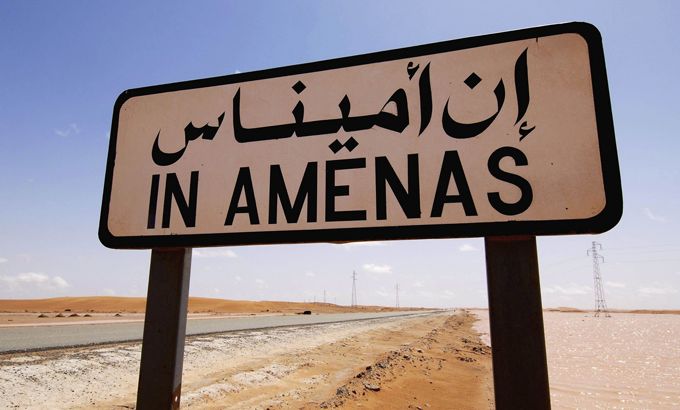
Unpacking Algeria’s hostage crisis
We examine whether the government was right to take such swift action without consulting the international community.
Algeria’s hostage crisis has come to a bloody end.
Troops stormed the In Amenas gas refinery in eastern Algeria on Saturday to end the four day hostile takeover, and are now searching the complex for explosives.
|
“The government should always be on the alert to see whether there is tension; with the Mali rebellion they should have been more prepared to protect isolated installations like the one involved in the trouble.“ – Mamdouh Salameh, consultant to the World Bank |
The Algerian government confirmed the death toll of 32 gunmen and 23 hostages, but has said the figure could rise.
Now critics are asking how the attackers were able to overrun the remote desert facility – and why?
On January 16, heavily armed gunmen attacked two buses carrying gas field workers at the In Amenas plant in the Sahara desert.
The approximately 40 armed fighters took hundreds of Algerians and other national expatriates’ hostage, demanding an end to the French military operation in neighbouring Mali.
An al-Qaeda offshoot, calling itself the ‘Signed in Blood battalion’, was said to be behind the assault.
Within 24 hours the Algerian army had launched an initial operation to take back the plant, as the gunmen tried to move the hostages.
Western leaders were angry that they had not been consulted. Two hostages were reported killed, while others escaped.
|
“A security-only response, as the Algerians were saying – and even though they exercised a lot of muscle in response to the hostage crisis – is not the best way to go. There is a more important political piece, humanitarian piece, there is a lot of things that need to go on in Algeria and neighbouring countries to address the full range of issues that are causing this … “ – Bill Lawrence, International Crisis Group, North Africa |
On January 18, a tense standoff unfolded, with the fate of many hostages unknown. Then on Saturday, Algerian special forces stormed the complex, launching their final, ruthless assault.
Seven hostages were killed by their captors, while 685 Algerian workers and 107 foreigners were freed.
As the crisis was unfolding on Wednesday, Mohamed Said, the Algerian communications minister, made the official position clear on not negotiating with armed groups: “We say that in the face of terrorism, yesterday as today as tomorrow; there will be no negotiation, no blackmail, no respite. Those who think we will negotiate with terrorists are delusional.”
Daho Ould Kabila, the Algerian interior minister, said the army intervened “to avoid a bloody turning point of events in this extremely dangerous situation. It was clear that the terrorists were determined to escape the country with the captives, and to bomb the gas installations”.
Inside Story examines whether the Algerian government was right to take such swift action without consulting the international community.
To discuss this, presenter Shiulie Ghosh is joined by guests: Mamdouh Salameh, an international oil economist and energy consultant to the World Bank; Bill Lawrence, the North Africa project director at the International Crisis Group; and Sylvain Touati, a fellow at FIKRA Consulting and Research, a Qatari think tank and an associate fellow with the French Institute for International Relations.